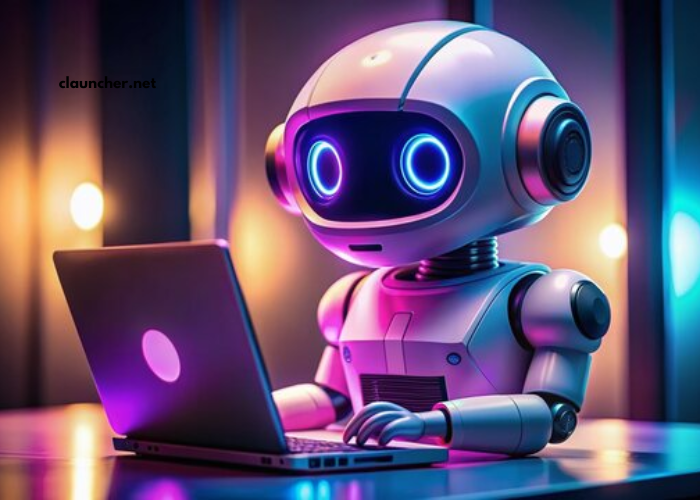
The technological landscape is evolving at an unprecedented rate. As we move further into 2025, it is becoming increasingly clear that emerging technologies are reshaping industries, consumer experiences, and even societies. In this article, we will delve into the latest technology trends that are not only creating waves but are expected to revolutionize the way we live, work, and interact with the world.
Artificial Intelligence (AI) and Machine Learning (ML) Take Center Stage
Advancements in AI and ML Algorithms
Artificial Intelligence (AI) and Machine Learning (ML) are undoubtedly two of the most impactful technologies that are reshaping our future. By 2025, these technologies will continue to evolve, becoming increasingly sophisticated and integrated into nearly every aspect of our lives. Machine learning models are becoming more adept at processing vast amounts of data to predict outcomes and optimize decision-making.
For example, in healthcare, AI algorithms are being used to analyze medical images, predict patient outcomes, and recommend personalized treatment plans. AI-driven automation is also transforming industries by streamlining processes, reducing costs, and enhancing efficiency. The trend is shifting towards “explainable AI,” where systems are designed to clarify the decision-making process, which will foster trust and transparency in critical applications.
AI-Powered Assistants and Natural Language Processing
As AI and Natural Language Processing (NLP) continue to advance, digital assistants are becoming increasingly intelligent. By 2025, we can expect highly sophisticated virtual assistants capable of understanding complex commands, conducting conversations, and offering more personalized services. These assistants will not only perform tasks but will also anticipate user needs based on context and preferences.
From smart homes to customer service, AI-driven NLP models are enhancing user experiences and revolutionizing how businesses interact with their clients. This will lead to greater customer satisfaction and more seamless communication across multiple platforms.
5G Connectivity: The Next Generation of Communication
The Role of 5G in Connectivity
By 2025, 5G networks will have been fully deployed worldwide, offering faster internet speeds, ultra-low latency, and the ability to connect billions of devices simultaneously. The enhanced capabilities of 5G will have far-reaching implications for both consumers and industries alike.
5G networks will empower IoT (Internet of Things) devices, enabling smart cities, autonomous vehicles, and connected healthcare systems. The ultra-low latency of 5G will make real-time communication possible in applications like remote surgeries, real-time data processing, and virtual reality (VR) experiences.
Impact on Industry and Consumer Experiences
The advent of 5G technology will enable industries to become more agile and responsive, fostering innovation and improving customer experiences. For example, the 5G rollout will enable the use of augmented reality (AR) and virtual reality (VR) in industries such as retail, entertainment, and education. Retailers will be able to provide immersive shopping experiences, while the entertainment industry will offer high-definition, low-latency VR gaming and live events.
In transportation, 5G will accelerate the development of autonomous vehicles, enabling them to communicate with one another and the surrounding environment to make real-time decisions. This will pave the way for smarter cities where traffic is optimized, and safety is enhanced.
The Rise of Quantum Computing
What is Quantum Computing?
Quantum computing represents a breakthrough in computing power that could potentially solve complex problems that are currently unsolvable by traditional computers. Unlike classical computers, which process data in binary (0s and 1s), quantum computers use quantum bits or qubits, which can exist in multiple states at once. This enables them to perform calculations at speeds that are orders of magnitude faster than conventional computers.
Implications for Industries
Quantum computing promises to revolutionize industries like pharmaceuticals, finance, and cybersecurity by providing advanced computational capabilities. In the field of drug discovery, quantum computers can model molecular interactions at an atomic level, speeding up the development of new medications. In finance, quantum algorithms can optimize portfolios, predict market trends, and enhance risk management.
Cybersecurity is also a critical area where quantum computing could have a profound impact. As quantum computers become more powerful, they could potentially break existing encryption algorithms. However, they could also enable the development of unbreakable encryption, offering a new level of security for sensitive data.
Edge Computing: Bringing Computing Power Closer to the Data
What is Edge Computing?
Edge computing is a decentralized form of computing where data processing happens closer to the source of data generation, rather than relying on a centralized data center. This reduces latency and bandwidth usage, making it particularly useful in applications where real-time processing is crucial.
How Edge Computing Will Transform Industries
In 2025, edge computing will play a vital role in sectors like manufacturing, healthcare, and logistics. In manufacturing, edge computing can optimize production lines by processing sensor data in real time, allowing for immediate adjustments and reducing downtime. In healthcare, edge computing can enable real-time patient monitoring through wearable devices, transmitting data to medical professionals for immediate analysis.
For logistics, edge computing can improve the efficiency of supply chains by analyzing data from sensors placed on trucks, warehouses, and goods. By doing so, companies can make smarter decisions, reduce delays, and enhance operational efficiency.
Robotics and Automation: Enhancing Efficiency and Precision
Advances in Robotics and Automation
The field of robotics and automation is advancing rapidly, and by 2025, we will see robots becoming more capable of performing complex tasks in various industries. Automation technologies, powered by AI and robotics, will be integrated into industries like manufacturing, logistics, healthcare, and even hospitality.
Robots are already being deployed in manufacturing environments for tasks like assembly, inspection, and packaging. In healthcare, robots are performing surgeries with high precision and assisting in rehabilitation. Autonomous robots are also being used in warehouses to manage inventory and fulfill orders, increasing operational efficiency.
Human-Robot Collaboration
Rather than replacing human workers, robots are being designed to collaborate with them. Human-robot collaboration (HRC) is becoming increasingly common, where robots handle repetitive and dangerous tasks, allowing human workers to focus on higher-level decision-making and creative tasks. This trend will help improve safety, productivity, and job satisfaction.
Blockchain and Decentralized Finance (DeFi)
The Evolution of Blockchain Technology
Blockchain technology, known primarily for powering cryptocurrencies like Bitcoin, has evolved into a powerful tool for improving transparency, security, and efficiency in various industries. In 2025, blockchain will go beyond finance to impact supply chains, voting systems, healthcare records, and intellectual property management.
Blockchain ensures secure, tamper-proof transactions and is being used to create decentralized applications (DApps) and smart contracts. This is transforming industries by reducing fraud, improving accountability, and enabling peer-to-peer transactions without the need for intermediaries.
Decentralized Finance (DeFi)
DeFi is a rapidly growing trend in the financial world, enabling peer-to-peer financial services such as lending, borrowing, and trading without relying on traditional financial institutions. By 2025, DeFi will have matured, offering consumers and businesses more options for financial transactions.
Smart contracts, built on blockchain technology, enable automated and secure transactions, which could lead to the disruption of traditional banking services. By removing intermediaries, DeFi can lower costs, increase access to financial services, and create new investment opportunities.
Sustainable Technology: Greening the Future
The Importance of Sustainable Innovation
As climate change becomes an increasingly urgent global issue, technology is playing a pivotal role in creating sustainable solutions. By 2025, advancements in clean energy, electric vehicles (EVs), and sustainable manufacturing will become more mainstream. Technologies like solar power, wind energy, and energy-efficient batteries will continue to grow in popularity, driving the transition to a low-carbon economy.
Sustainable Tech in Industry
Sustainable technologies are not only changing the way we power our homes and vehicles but are also revolutionizing industries. Companies are adopting sustainable manufacturing practices, reducing waste, and utilizing renewable energy sources in production. Electric vehicles will become more affordable and accessible, with advancements in battery technology leading to longer ranges and shorter charging times.
In agriculture, technologies like precision farming, which uses AI and IoT to optimize crop yields, are reducing the environmental impact of farming. The rise of plant-based alternatives and lab-grown meat is also contributing to more sustainable food systems.
Conclusion
The technological advancements of 2025 promise to be transformative, offering innovative solutions across industries and improving the way we live. AI, 5G, quantum computing, edge computing, robotics, and blockchain are just a few of the key technologies that will continue to shape our world in the coming years. As these technologies evolve, they will create new opportunities, enhance efficiency, and foster sustainability, ultimately revolutionizing industries and society as a whole.
Staying ahead of these trends will be crucial for businesses and individuals alike, as adapting to these changes will determine success in the rapidly shifting technological landscape of the future.





